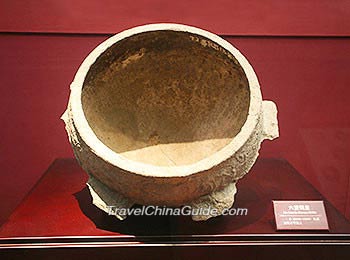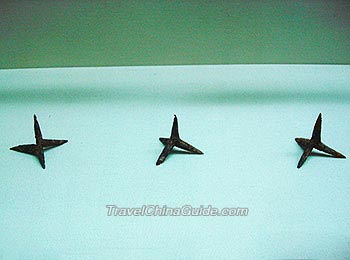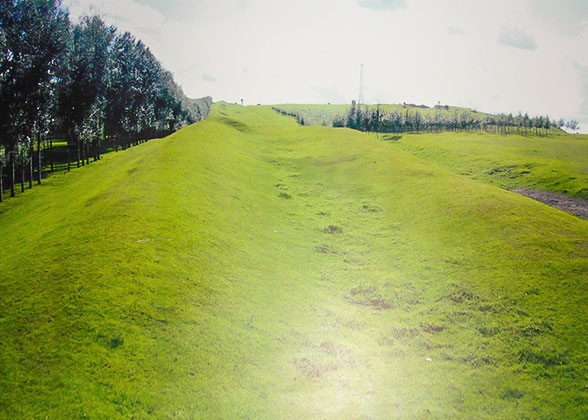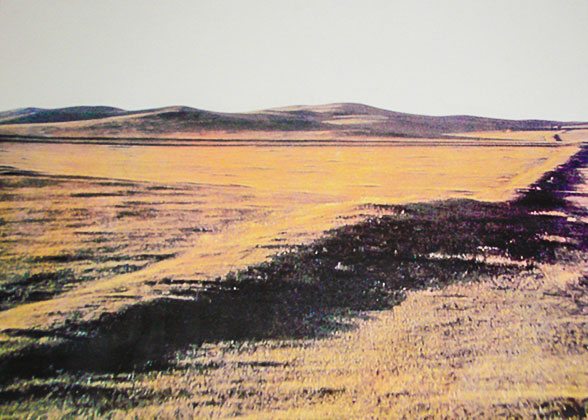Jin Dynasty
The Jin Dynasty was founded by the ethnic minority known as the Nuzhen who originated from the Heilongjiang River and Songhua River regions and the Changpai Mountain area. In 1115, one of the Nuzhen tribal leaders, by the name of Wanyan Aguda, unified the whole Nuzhen group and established this Dynasty in Acheng City (currently in Heilongjiang Province). Later, the capital city was moved to Yanjing (currently Beijing and finally settled in Bianjing (currently Kaifeng).
|
|
|
|
Interestingly, communication with other countries, especially the Song Dynasty, led to the Jin Dynasty gradually adopting a feudal system, resulting in a well developed social economy. Traditionally, the Nuzhen people lived from fishing and hunting, with livestock husbandry as their dominant industry. Under the influence of the Han people, agriculture, commerce and the handicraft industry made great progress. Significant cultural advancements in drama and literature were also made.
During the late Jin Dynasty, rulers became corrupt and there was a dramatic surge in national uprisings. What was worse, the Jin court in that period made enemies simultaneously with Xixia, the Northern Song and the Mongolian Kingdom. In 1234, the Jin army was finally defeated by the allied forces of the Northern Song and the Yuan Dynasty was founded by Mongolia. After 119 years, it came to an end.
Emperors of the Jin Dynasty
| Order | Name | Notes | Time of Reign (years) |
|---|---|---|---|
| 1 | Jin Taizu (Wanyan Aguda) | Initially, he was one of the leaders of the Nuzhen tribes. After he unified the whole Nuzhen group, he proclaimed himself emperor and founded the Jin Dynasty in 1115. | 1115 - 1123 |
| 2 | Jin Taizong (Wanyan Wuqimai) | Younger brother of Jin Taizu; In his reign, Liao (907 - 1125) and Northern Song (960 - 1127) were defeated and the Xixia into a subordinate country. | 1123 - 1134 |
| 3 | Jin Xizong (Wanyan Hela) | Grandson of Jin Taizu; He was killed by Wanyan Liang. | 1135 - 1149 |
| 4 | Hailing Wang (Wanyan Liang) | He moved the capital to Yanjing (currently Beijing) and later to Bianjing (currently Kaifeng). He was killed by a Jin general for his escape in the battle with Song. | 1149 - 1161 |
| 5 | Jin Shizong (Wanyan Yong) | He was originally a governor of Kaifeng. Later, he was put on the throne and took the place of Hailing Wang who was quickly dethroned. | 1161 - 1189 |
| 6 | Jin Zhangzong (Wanyan Jing) | Grandson of Jin Shizong | 1190 - 1208 |
| 7 | Weishao Wang (Wanyan Yongji) | The seventh son of Jin Shizong; He was killed in a rebellion launched by a Jin general. | 1209 - 1213 |
| 8 | Jin Xuanzong (Wanyan Xun) | The elder brother of Jin Zhangzong; He came to the throne after Weishao Wang was killed. | 1213 - 1223 |
| 9 | Jin Aizong (Wanyan Shouxu) | The third son of Jin Aizong; After the Yuan army captured Jin's capital, Kaifeng, he fled to Caizhou, passed the throne to his son and committed suicide. | 1224 - 1234 |
| 10 | Jin Modi (Wanyan Chenglin) | Nominally the last emperor of Jin; He was killed soon after the Yuan army captured Caizhou. | Less than one day in 1234 |
- Last updated on Apr. 21, 2021 -



